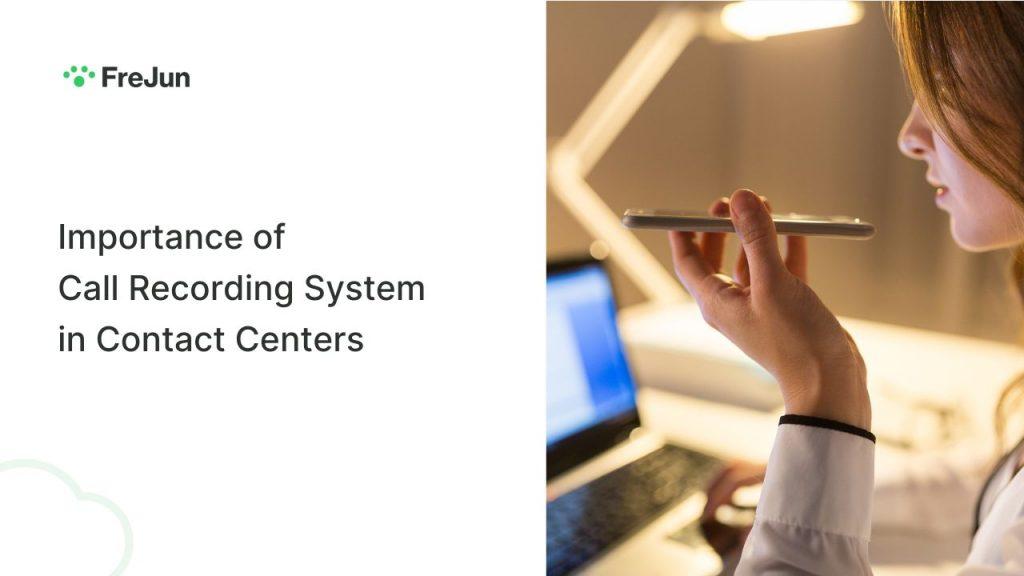In an era where customer experience is a top priority, contact centers must leverage advanced technologies to ensure efficiency, compliance, and quality service. If you run a contact center or own one, you would know customer conversations are a goldmine of information. They can result in new product developments or even highlight core issues in the product. In other words, they are the perfect tool to improve customer experience. One of the most crucial tools in this landscape is a Call Recording System. As we step into 2025, the significance of these systems continues to grow, driven by technological advancements and evolving customer expectations.
As your contact center grows and daily conversations increase, capturing valuable insights becomes challenging. This is where a call recording system plays a crucial role, seamlessly capturing interactions and enabling better analysis, ultimately driving improved business outcomes.
Editor’s Choice: Call Intelligence: What it is, Features and Benefits
In this post, we will look at all the key benefits of a call recording system in a contact center.
What is a Call Recording System?
As the name suggests, a call recording system is a business software that records voice conversations over an audio source like a phone. In a contact center, it is used to record every conversation between an agent and a call to meet a variety of purposes. This software helps to store, retrieve, and evaluate recorded calls according to business needs. Sometimes, call recording is also called voice recording or phone recording. Certain advanced call recording software also offer services like transcription and note-taking.
Interestingly, a call recording system is an integral part of a contact center’s quality management process. Supervisors and managers use the call recording system to analyze the calls and determine if the agents are
- Conversing according to pre-established call flows
- Building rapport with the calls
- Grabbing upselling and cross-selling opportunities whenever available
- Controlling the calls
- Offering accurate answers to the questions asked by the caller
The singular motive of a call recording system is to improve the caller experience.
Benefits of Call Recording for Today’s Call Centers
Here are the top reasons why you must record calls in your call centers –
1- Revisit Missed Information
This is the simplest and most obvious benefit of call recording. As highlighted in the post, when your contact center scales up and the number of incoming calls exponentially surges, there are high chances of your agents missing out on key information about the call. But when you use a call recording system, you will get access to recording archives that give you an exact reference for your past interactions. It could be anything from client contact information to key objections.
Let us consider a simple example. During a call, your customer requests a particular feature addition to the product. However, your agent missed the precise details about the feature and conveyed incorrect information to the developers. This resulted in customer dissatisfaction, wastage of time, and wastage of resources. On the other hand, if there was a call recording, either your agent could have revisited the call to confirm the details or simply shared the call recording with the development team so that there is no loss of information.
2- Maintain Professionalism
Every interaction between your agent and customer is critical. You need to achieve high standards of professionalism in each and every call to be successful. Your agent has to maintain phone etiquette, treat the customer respectfully, communicate clearly, and converse in a pleasant tone. Most importantly, they must be able to answer all the customer questions clearly. Any minor deviation from this expected behavior can result in customer dissatisfaction and loss of sales.
As a manager or a contact center owner, the only way you can maintain this professionalism is by recording the calls and listening to them. Of course, you can always surprise an agent by listening to a call in real time, but that’s not practical for every call. Also, the agent might start putting forward their best behavior if they know that their call is being monitored.
A call recording system will record the calls automatically and lets you analyze them at your will. This way, you will know who is maintaining professionalism and who is not.
3- Onboarding and Training
This is a given. The data collected from call recordings can be used to provide better training to the contact center agents. For instance, there could be some top performers in your contact center who are consistently doing a good job. You can share the call recordings of those contact center agents with the rest of the team for them to understand what those agents did right. The vice versa can also happen. You can use the call recordings of some failed calls to highlight what went wrong and how it can be avoided in the future.
4- To Protect You in Disputes
When you record calls, you create information to protect yourself in case something goes wrong. Even the best companies end up getting complaints and tangled in legal cases. Any customer can come up and say that your contact center has done something inappropriate. When that happens, you can go back and listen to the recording to check whether it’s true or not.
Process of the Call Recording System
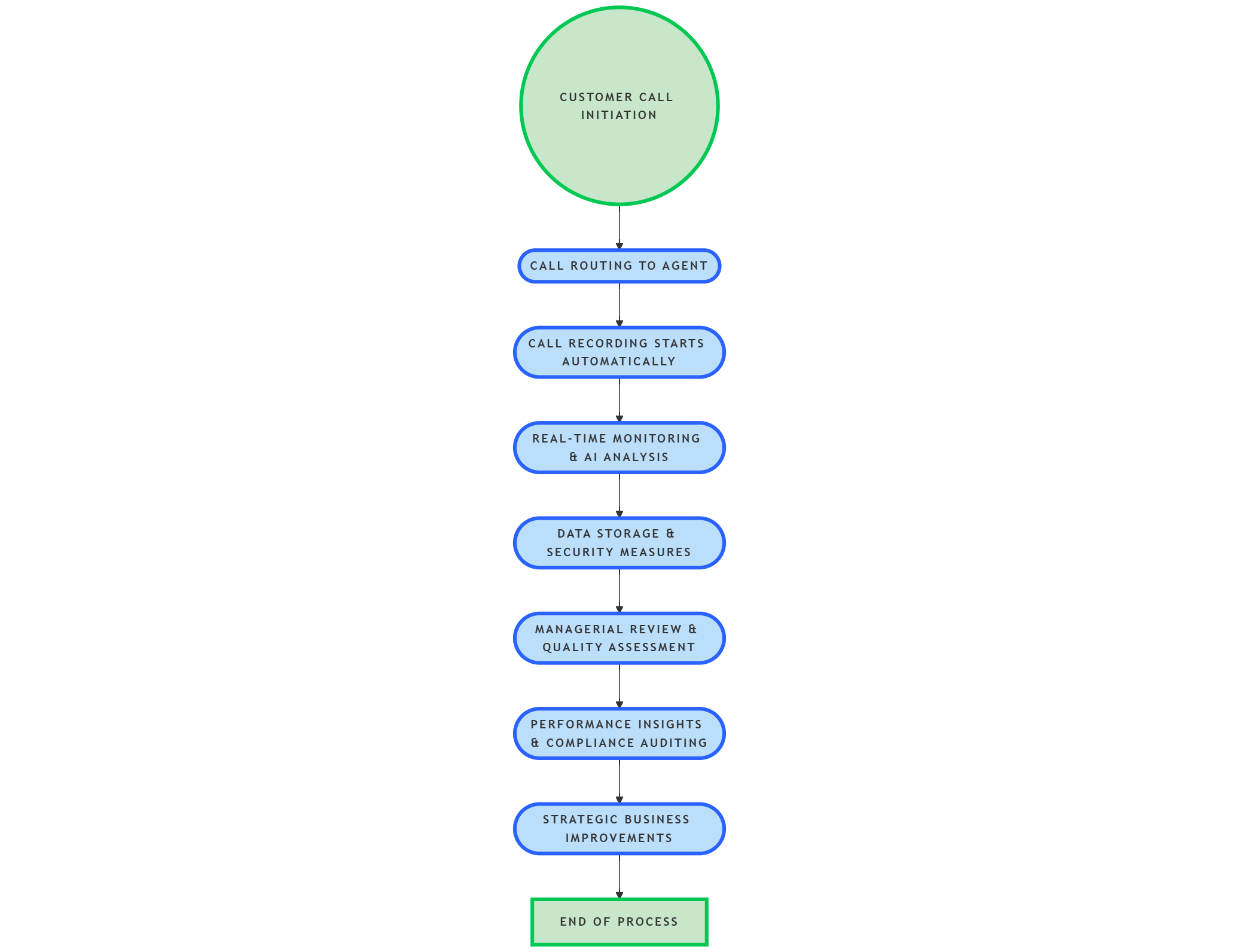
Top Call Recording Software in 2025
Here are the top call recording software you can consider adopting in 2025 –
1. FreJun
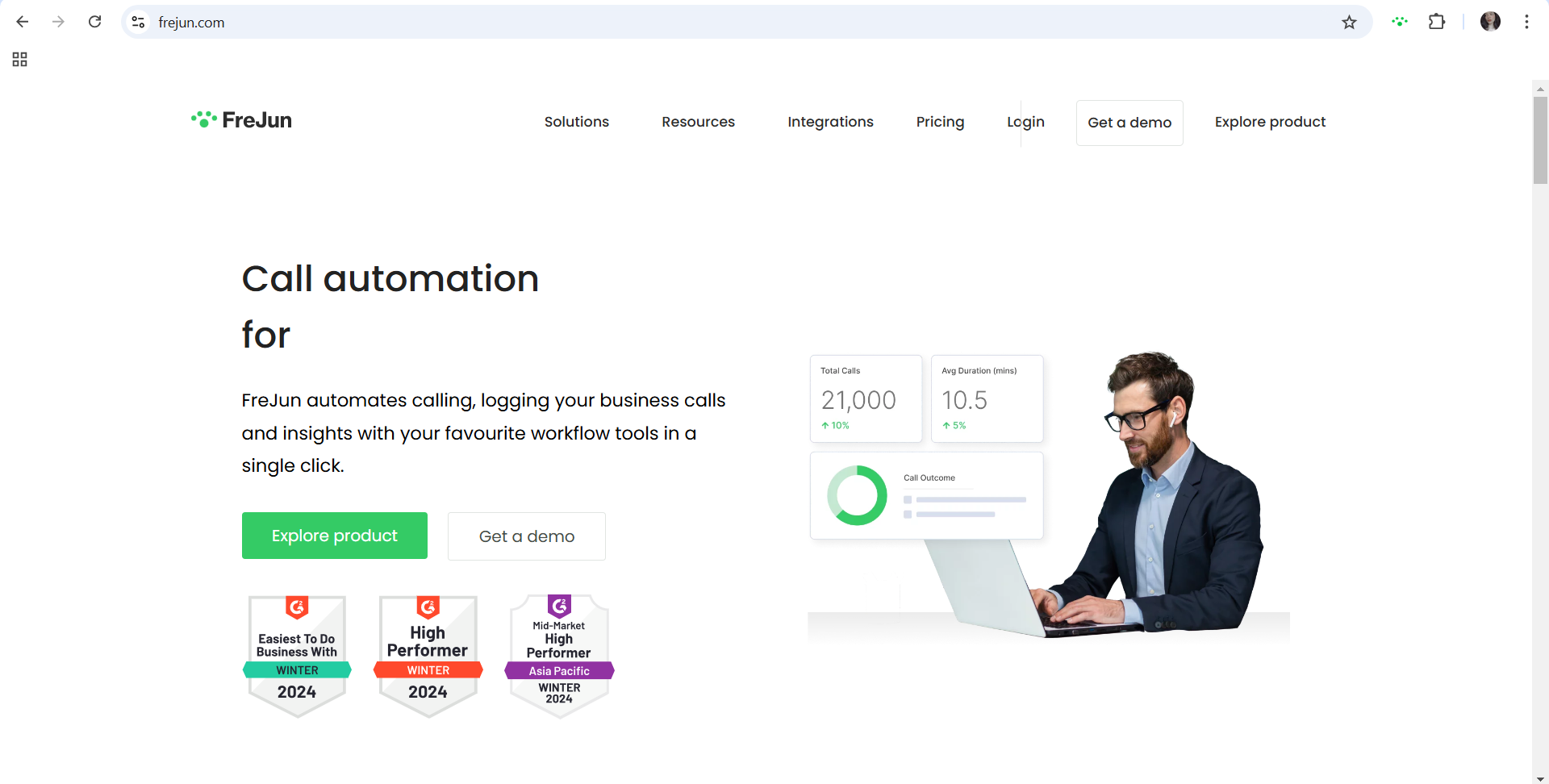
FreJun is the best call recording software in 2022 and justifies this claim to a great extent. For starters, the tool is not just a call recording platform. It comes with an array of other features that makes your life as a contact center manager or agent seamless. FreJun can be integrated with a variety of CRMs like HubSpot, PipeDrive, and Zoho, thereby ensuring that your contact center agents always have customer data at their fingertips. Thanks to its powerful AI engine, you get access to plenty of call insights that you can use for making better decisions in your contact center.
Key Features:
1- Global Virtual Numbers: Acquire local or toll-free numbers to create a professional image in regions like Dubai.
Why is a Virtual Number Beneficial for your Business?
2- In-Depth Analytics: Gain actionable insights through performance tracking to refine your communication strategies.
3- Flexible Scalability: Ideal for companies of all sizes, whether you’re a startup or an enterprise-level organization.
4- AI-Driven Insights: Harness the power of AI for accurate call transcription, detailed tracking, and meaningful analytics that drive business decisions.
The Benefits of Using AI Insight for Call Management
5- Multilingual Transcription: Support a diverse audience with multi-language transcription for global communication.
6- CRM Compatibility: Seamlessly integrate with top CRM tools like Salesforce and HubSpot to enhance workflow automation and customer relationship management.
Customer Relationships: Logging Sales Calls in Zoho CRM
7- Data Security: Ensure complete protection with state-of-the-art encryption for all communication.
Pricing: Standard: Begins at $14.49 per user, per month.
Professional: Starts at $16.69 per user, per month.
G2 Rating: 4.9 out of 5 (Read Reviews)
2. Nextiva
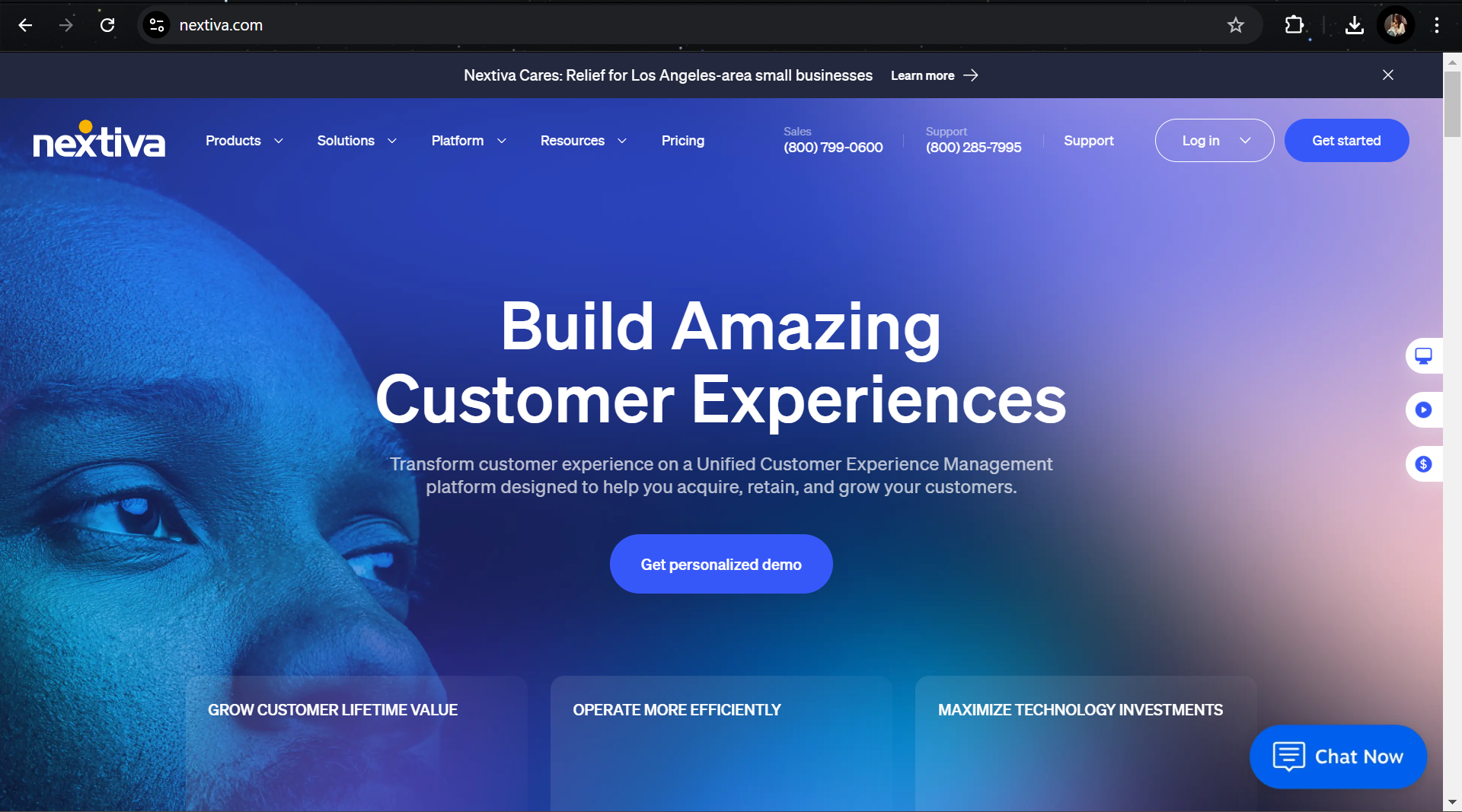
Nextiva is a VoIP-based communication and collaboration software that offers call recordings as one of its key features. All calls recorded via Nextiva are saved in the cloud, eliminating the need to purchase expensive hardware and software. And you can turn on the recording option in your Nextiva dashboard with a single click.
Key Features:
1- HD voice calling with mobile and desktop apps.
2- Auto-attendant and smart call routing.
3- CRM and helpdesk integrations with tools like Zendesk and Salesforce.
4- Unlimited calling in the U.S. and Canada.
5- Call analytics and reporting tools.
Pricing: Starts at $23.95/user/month.
G2 Rating: 4.5 out of 5 (Read Review)
3. RingCentral
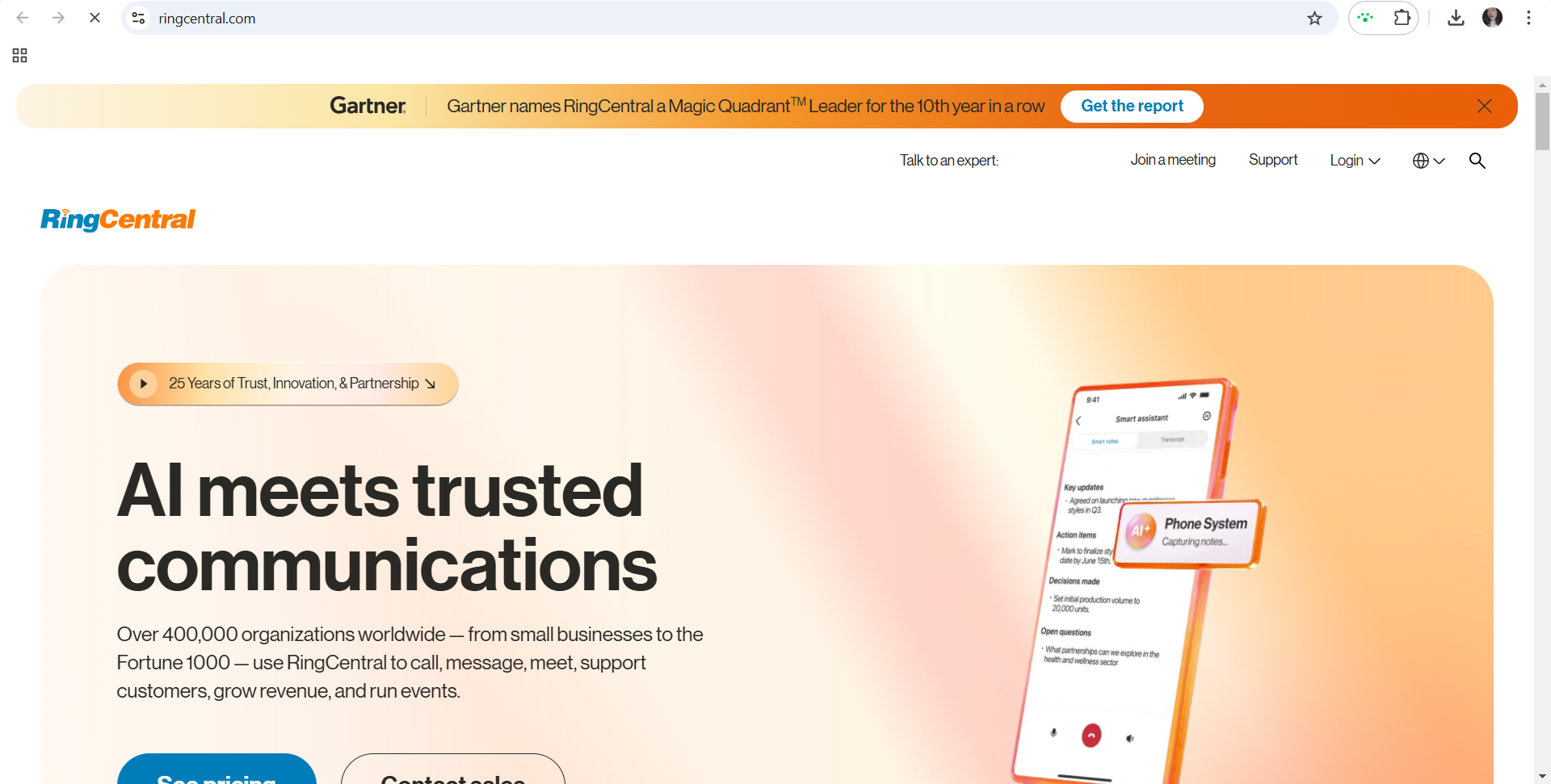
RingCentral is a cloud-based communication platform that records all your contact center’s calls among its various capabilities. The best part about RingCentral is that it can record both inbound and outbound calls automatically. The platform lets you save as many as 100,000 call recordings per account. You can download and playback all the recordings up to 90 days after creation.
Key Features:
1- Global Office Setup: Establish a professional presence in Saudi Arabia with local numbers.
2- Unified Communication: Integrates voice, messaging, video, and collaboration into one platform.
3- Call Forwarding and Delegation: Seamlessly handle calls across your team with advanced call management.
4- 24/7 Support: Reliable customer support for uninterrupted communication.
5- AI-Enhanced Analytics: Monitor team performance and improve workflows.
Pricing: The basic plan for calling is $30/user/month
G2 Rating: 4 out of 5 (Read Review)
4. 8X8

8X8 is a dedicated contact center tool that comes packed with AI-powered workflows for every interaction. It lets you effortlessly capture all your customer recordings and retrieve them anytime for training and compliance purposes. The tool is very flexible when it comes to the storage of call recordings. You can either store them on your desktop or in a Dropbox account or keep them in the cloud of 8X8.
Key Features
1- Cloud-Based VoIP – High-quality voice calling with auto-attendant and call forwarding.
2- Omnichannel Contact Center – Supports voice, chat, email, and social media with AI-driven analytics.
3- Video Conferencing & Team Messaging – HD video, screen sharing, and integrations with Microsoft Teams, Slack, etc.
4- AI-Powered Insights – Real-time call analytics and sentiment analysis.
5- Global Cloud Communications – Scalable platform with compliance (GDPR, HIPAA).
6- Integration & API Support – Works with CRM tools like Salesforce, HubSpot, and more.
Pricing: Contact 8X8
G2 Rating: 4.0 out of 5 (Read Review)
5. CallRail
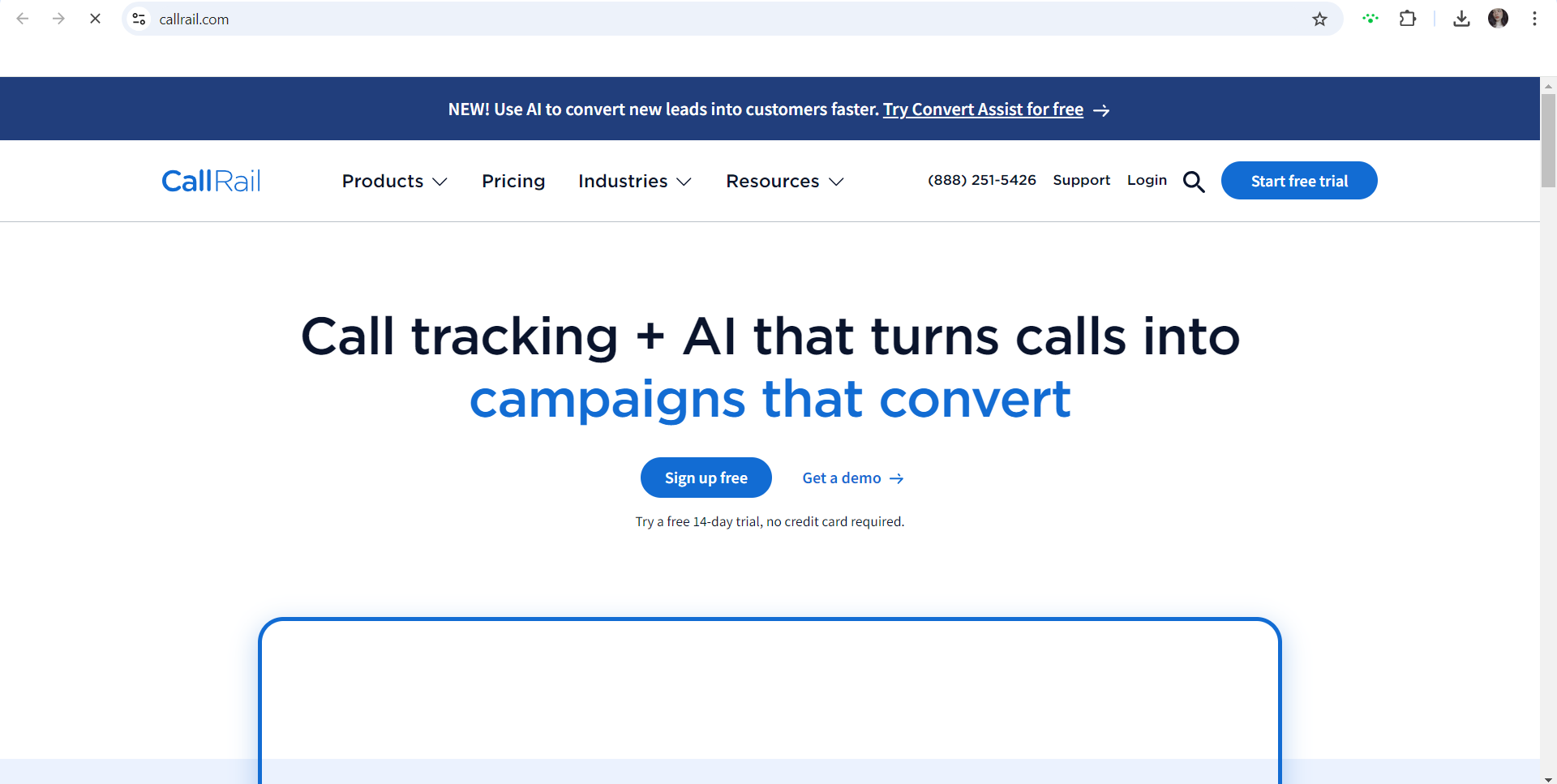
CallRail is considered primarily to be a marketing analytics and call-tracking platform that is used by businesses worldwide for driving inbound leads. The tool also comes out of the box with a capable call-recording system that records and stores both your inbound and outbound calls. This way, you can revisit your customer needs and assess the quality of your campaigns so you know where to invest your money. Every call recording is available either in your call log or in your inbox, as you get an email notification after the call ends.
Key Features
1- Call Tracking – Tracks and records inbound calls to analyze marketing campaign performance.
2- Dynamic Number Insertion (DNI) – Assigns unique phone numbers to different marketing sources for attribution.
3- AI-Powered Conversation Intelligence – Uses AI to transcribe calls, detect keywords, and provide insights.
4- Lead Scoring & Tagging – Automatically categorizes calls based on intent and quality.
5- Multi-Touch Attribution – Identifies the full customer journey across multiple touchpoints.
6- Form Tracking – Captures and analyzes lead data from online forms alongside call tracking.
Integrations – Connects with Google Analytics, HubSpot, Salesforce, and other marketing tools.
Pricing: Call Tracking: $45
Call Tracking +Form Tracking: $90
Tracking Conversation Intelligence: $90
Call Tracking Complete: $135
G2 Rating: 4.6 out of 5 (Read Review)
Conclusion
As contact centers continue to evolve in 2025, investing in a robust call recording system is no longer an option but a necessity. From enhancing customer experience to ensuring compliance, call recording systems drive success. Moreover, businesses that adopt these solutions gain a competitive edge. As a result, they improve customer service and operational efficiency. Ultimately, prioritizing call recording is essential for meeting evolving demands.
Further Reading-Untold facts on Cloud IVR Using One In Your Call Center
Frequently Asked Questions – Call Recording System
- Why is Call Recording Important?
Call recording is important because it helps in revisiting past or missed information, onboarding and training, as well as protecting you from any disputes.
- What is Call Recording in the Contact Center?
Call recording is the process of capturing every inbound and outbound call that happens between a contact center agent and a customer.
- How Does a Call Recording System Works in the BPO Industry?
A call recording system automatically records all the calls and stores it in the cloud. This way, agents, managers, and business owners can access the recordings for future purposes.
- What are the Benefits of Call Recording?
The top benefits of call recording include revisiting missed information, maintaining professionalism, onboarding and training, and protecting you in a dispute.
- What is the Future of the Call Center?
The future of call centers will be complete automation and a total focus on customer satisfaction. Customers will be satisfied consistently as agents will have access to all the key information they need during a call. Also, training and onboarding will be personalized, which will help them further perfect calls.
- How Can a Call Center Improve Customer Satisfaction?
The easiest way to improve customer satisfaction in a call center is by adopting a cloud telephony platform like FreJun that offers a variety of features like call recording, autodial, and integrations.
